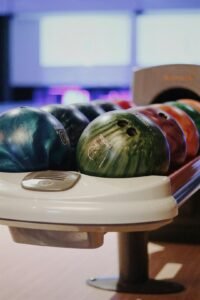Comprehensive Guide of Cooking
Overview
Cooking is a culinary hobby that involves the preparation, cooking, and presentation of food. It is an art form that allows individuals to express their creativity while also providing nourishment and enjoyment. Cooking can range from simple home-cooked meals to elaborate gourmet dishes, encompassing various techniques, cuisines, and dietary preferences. This hobby not only fosters a deeper appreciation for food but also encourages experimentation with flavors, ingredients, and cooking methods. Many people find cooking to be a therapeutic activity that promotes mindfulness and relaxation, as it engages the senses and provides a sense of accomplishment when a dish is successfully prepared.
History
The history of cooking dates back to prehistoric times when early humans discovered fire and began to cook food, which made it easier to digest and safer to eat. Over the centuries, cooking techniques and recipes evolved, influenced by cultural exchanges, trade, and the availability of ingredients. Ancient civilizations, such as the Egyptians, Greeks, and Romans, developed sophisticated cooking methods and established culinary traditions that laid the groundwork for modern cuisine. The Middle Ages saw the rise of cookbooks, while the Renaissance period introduced new ingredients from the Americas, transforming European cooking. In the 19th and 20th centuries, the industrial revolution and globalization further diversified culinary practices, leading to the emergence of various regional cuisines and cooking styles that are celebrated today.
Popularity and Demographics
Cooking has become an increasingly popular hobby worldwide, appealing to individuals of all ages and backgrounds. According to recent surveys, a significant percentage of people engage in cooking as a leisure activity, with many finding joy in preparing meals for family and friends. The rise of food culture, cooking shows, and social media platforms has contributed to the hobby’s popularity, inspiring home cooks to experiment with new recipes and techniques. Cooking classes and workshops have also gained traction, attracting diverse demographics, including young adults, families, and retirees. Additionally, the growing interest in healthy eating and sustainable food practices has encouraged more people to take up cooking as a way to control their diets and explore fresh, local ingredients.
Sponsored Hobbyists and Vendors
Become a Sponsor!
Affiliate Disclaimer: Throughout some sections below, Hobby Spotlight may suggest some tools, equipment or material using affiliate links. By purchasing any of those items, Hobby Spotlight may earn a small commission. This helps fund our website, content and services without directly charging our users.
Getting Started
Essential Tools and Equipment:
Beginner
- Chef’s Knife: A versatile knife for chopping, slicing, and dicing.
- Cutting Board: A durable surface for cutting and preparing ingredients.
- Measuring Cups: Essential for accurately measuring liquid and dry ingredients.
- Mixing Bowls: Various sizes for mixing ingredients and preparing dishes.
- Spatula: A tool for flipping, turning, and serving food.
Intermediate
- Mandoline Slicer: A tool for slicing vegetables and fruits uniformly.
- Food Processor: An appliance for chopping, slicing, and blending ingredients.
- Cast Iron Skillet: A heavy-duty skillet for searing, frying, and baking.
- Digital Meat Thermometer: For accurately measuring the internal temperature of meats.
- Stand Mixer: An electric mixer for kneading dough and mixing batter.
Basic Requirements and Initial Setup:
- Kitchen Space: A clean and organized kitchen with ample counter space is essential for preparing ingredients and cooking. Ensure you have access to necessary appliances like a stove, oven, and refrigerator.
- Essential Cookware and Utensils: Invest in basic cookware such as pots, pans, baking sheets, and essential utensils like knives, cutting boards, measuring cups, and spoons to facilitate various cooking techniques.
- Basic Ingredients: Stock your pantry with staple ingredients such as oils, spices, herbs, grains, legumes, and proteins. Fresh produce and dairy products are also important for a variety of recipes.
Fundamental Skills to Learn:
- Knife Skills: Learning how to properly chop, dice, and slice ingredients is crucial for efficiency and safety in the kitchen.
- Cooking Techniques: Familiarize yourself with various cooking methods such as boiling, sautéing, roasting, and grilling to expand your culinary repertoire.
- Flavor Balancing: Understanding how to balance flavors—sweet, salty, sour, and bitter—will enhance your dishes and make them more enjoyable.
- Time Management: Developing the ability to multitask and manage cooking times for different components of a meal is essential for serving dishes at their best.
- Presentation Skills: Learning how to plate and present food attractively can elevate the dining experience and make meals more appealing.
Sub-Hobby/Common Activities:
- Baking: The art of preparing bread, pastries, and desserts, focusing on precise measurements and techniques.
- Grilling: Cooking food over an open flame or heat source, often associated with outdoor cooking and barbecues.
- Fermenting: The process of preserving food through fermentation, such as making pickles, yogurt, or sourdough bread.
- Meal Prepping: Planning and preparing meals in advance to save time and ensure healthy eating throughout the week.
- International Cuisine Exploration: Experimenting with recipes from different cultures to broaden your culinary skills and palate.
Terminology:
- Al Dente: An Italian term meaning ‘to the tooth,’ referring to pasta that is cooked until firm to the bite.
- Blanching: A cooking technique where food is briefly boiled and then plunged into ice water to stop the cooking process.
- Caramelization: The process of cooking sugar until it turns brown, enhancing flavor and color in dishes.
- Emulsification: The process of mixing two liquids that normally do not combine, such as oil and vinegar, often used in dressings and sauces.
- Julienne: A cutting technique where food is sliced into thin, matchstick-like strips.
- Marinating: Soaking food in a seasoned liquid to enhance flavor and tenderness before cooking.
- Reduction: The process of simmering or boiling a liquid to concentrate flavors and thicken the consistency.
- Sous Vide: A cooking method where food is vacuum-sealed and cooked in a water bath at a precise temperature for an extended period.
- Umami: A savory taste often described as the fifth taste, found in foods like mushrooms, tomatoes, and aged cheeses.
- Zest: The outer, colorful skin of citrus fruits, used to add flavor and aroma to dishes.
Advanced Topics and Specializations
Advanced Tools and Equipment:
- Sous Vide Precision Cooker: A device that allows for precise temperature control for cooking vacuum-sealed food in a water bath.
- High-Performance Chef’s Knife: A premium quality knife designed for professional chefs, offering exceptional sharpness and balance.
- Digital Food Thermometer: An instant-read thermometer that provides accurate temperature readings for perfectly cooked meats and dishes.
- Cast Iron Dutch Oven: A versatile cooking pot that retains heat well, ideal for slow-cooking, braising, and baking.
- Food Dehydrator: A machine that removes moisture from food to preserve it, perfect for making jerky, dried fruits, and snacks.
Advanced Projects and Achievements:
- Gourmet Meal Preparation: Crafting multi-course meals that showcase culinary skills, utilizing seasonal ingredients and advanced cooking techniques.
- Fermentation Mastery: Creating homemade fermented foods such as kimchi, sauerkraut, and kombucha, focusing on flavor development and health benefits.
- International Cuisine Exploration: Mastering dishes from various cultures, such as authentic Italian pasta-making or traditional Japanese sushi rolling.
Advanced Techniques and Methods:
- Sous Vide Cooking: Utilizing precision temperature control to cook food evenly and retain moisture, enhancing flavor and texture.
- Emulsification Techniques: Mastering the art of creating stable emulsions for sauces like hollandaise or vinaigrettes, ensuring a perfect blend of ingredients.
- Plating and Presentation: Learning advanced plating techniques to enhance the visual appeal of dishes, using color, texture, and arrangement to create stunning presentations.
Specializations and Niche Areas:
- Plant-Based Cooking: Focusing on creating delicious and nutritious meals using only plant-based ingredients, catering to vegan and vegetarian diets.
- Gluten-Free Cooking: Developing recipes that utilize alternative grains and flours to create gluten-free versions of traditional dishes.
- Meal Prep and Batch Cooking: Specializing in preparing meals in advance for convenience, focusing on healthy, balanced options that save time during the week.
- Artisanal Bread Baking: Emphasizing traditional methods and high-quality ingredients to produce unique and flavorful breads.
- Ethnic Cuisine Specialization: Diving deep into specific regional cuisines, such as Indian, Thai, or Mexican, to master authentic recipes and techniques.
Future Trends and Innovations:
- Increased focus on sustainable cooking practices, including zero-waste cooking and sourcing local ingredients.
- Growing popularity of meal kits that provide pre-measured ingredients and recipes for home cooking.
- Integration of health-conscious cooking, with an emphasis on low-carb, low-sugar, and nutrient-dense meals.
- Adoption of smart kitchen appliances that streamline cooking processes and enhance precision.
- Emergence of online cooking communities and platforms that foster collaboration and sharing of recipes and techniques.
Technology Integration:
- Smart Kitchen Appliances: Devices like smart ovens and refrigerators that connect to apps for recipe suggestions and cooking assistance.
- Cooking Apps and Websites: Platforms that offer a vast array of recipes, cooking tips, and instructional videos to enhance culinary skills.
- Virtual Cooking Classes: Online classes that allow participants to learn from professional chefs in real-time, fostering community and skill development.
- Food Delivery Services: Utilizing technology to provide convenient access to fresh ingredients and meal options delivered to your door.
- Augmented Reality Cooking Guides: Innovative applications that use AR to provide step-by-step cooking instructions and visual aids directly in the kitchen.
Further Learning and Resources
Books:
- The Joy of Cooking by Irma S. Rombauer: A classic cookbook that covers a wide range of recipes and techniques, making it an essential guide for novice cooks.
- How to Cook Everything by Mark Bittman: This comprehensive book provides simple recipes and cooking techniques, ideal for those just starting out in the kitchen.
- Salt, Fat, Acid, Heat by Samin Nosrat: An engaging book that teaches the fundamental elements of cooking, empowering beginners to create delicious meals.
- The French Laundry Cookbook by Thomas Keller: A sophisticated cookbook featuring recipes from the renowned restaurant, perfect for experienced cooks looking to elevate their skills.
- Modernist Cuisine: The Art and Science of Cooking by Nathan Myhrvold: A groundbreaking work that explores the science behind cooking techniques, ideal for advanced cooks interested in modernist cuisine.
- The Professional Chef by The Culinary Institute of America: A comprehensive textbook that covers advanced cooking techniques and professional practices, suitable for serious culinary students and enthusiasts.
Websites:
- AllRecipes, https://www.allrecipes.com – A comprehensive recipe database with user-generated content, reviews, and cooking tips for all skill levels.
- Food Network, https://www.foodnetwork.com – Features recipes, cooking shows, and expert advice from renowned chefs.
- BBC Good Food, https://www.bbcgoodfood.com – Offers a wide variety of recipes, meal planning ideas, and cooking techniques.
- Serious Eats, https://www.seriouseats.com – Provides in-depth articles, recipes, and cooking science to enhance your culinary skills.
- Epicurious, https://www.epicurious.com – A rich resource for recipes, cooking tips, and food-related articles from various cuisines.
Courses:
- America’s Test Kitchen Online Cooking School, https://www.americastestkitchen.com – Offers a variety of cooking courses for beginners to advanced cooks, focusing on techniques and recipes.
- Udemy Cooking Courses, https://www.udemy.com/courses/search/?q=cooking – A wide selection of cooking classes covering various cuisines and techniques for all skill levels.
- MasterClass with Gordon Ramsay, https://www.masterclass.com – Learn cooking techniques and recipes from the world-renowned chef in this comprehensive online course.
- Skillshare Cooking Classes, https://www.skillshare.com/browse/cooking – Project-based classes that cover a range of cooking skills and cuisines, suitable for all levels.
- Institute of Culinary Education (ICE), https://www.ice.edu – Offers professional culinary training and recreational cooking classes for aspiring chefs and home cooks.
Content Creators and Community
Content Creators:
- Andrew Rea (YouTube): Creator of the popular series Binging with Babish, where he recreates iconic dishes from movies and TV shows, blending culinary skills with entertainment.
- Joshua Weissman (YouTube): Known for his engaging cooking tutorials that emphasize technique and homemade recipes, encouraging viewers to cook from scratch.
- Tasty (YouTube): A widely recognized platform for quick and visually appealing recipe videos, covering a diverse range of cuisines and cooking styles.
- Chef Sous Chef (Instagram): A culinary duo sharing delicious recipes and cooking tips through vibrant photos and engaging stories.
- Laura Vitale (YouTube): Host of Laura in the Kitchen, where she shares approachable Italian recipes and cooking techniques for home cooks.
- Gordon Ramsay (YouTube): Renowned chef offering a mix of professional cooking techniques, recipes, and culinary challenges, inspiring viewers to elevate their cooking skills.
- Ina Garten (Food Network): Known as the Barefoot Contessa, she shares simple yet elegant recipes that focus on fresh ingredients and entertaining.
Online Forums and Social Media Groups:
- Reddit – /r/Cooking: A vibrant community for sharing recipes, cooking tips, and culinary experiences.
- Facebook Cooking Groups: Various groups where home cooks share their creations, ask for advice, and exchange recipes.
- Cooking Discord Servers: Interactive platforms for real-time discussions, recipe sharing, and cooking challenges.
- Instagram Hashtags (#cooking, #homecooking): Follow trending recipes and cooking inspiration through user-generated content.
- Pinterest Boards: A treasure trove of recipe ideas and cooking techniques curated by passionate home cooks.
Local Clubs and Organizations:
- Community Cooking Classes: Many local community centers offer classes where enthusiasts can learn new skills and share recipes.
- Culinary Schools: Often host workshops and classes open to the public, providing hands-on cooking experiences.
- Farmers’ Market Associations: Support local food producers and provide opportunities for cooking demonstrations and networking.
- Cooking Clubs: Local groups that meet regularly to share recipes, cook together, and explore different cuisines.
- Meetup Groups: Platforms like Meetup.com host local cooking clubs and themed cooking events.
Events, Meetups, and Conventions:
- Food & Wine Festival: A premier event featuring cooking demonstrations, tastings, and workshops led by renowned chefs.
- Local Cooking Competitions: Regional contests that encourage culinary creativity and skill development among home cooks.
- Food Festivals: Many festivals showcase local cuisine, cooking demos, and interactive classes for attendees.
- Workshops at Culinary Exhibitions: Opportunities to learn from professional chefs and culinary experts in a hands-on environment.
- Cooking Conventions: Events that combine competitions, networking, and product showcases for cooking enthusiasts.
Associated Hobbies
- Baking: A popular branch of cooking, baking involves creating a variety of sweet and savory goods, from bread and pastries to cakes and cookies. It allows for creativity and experimentation with flavors and techniques.
- Grilling: This outdoor cooking method focuses on cooking food over direct heat, often on a grill. Grilling is popular for meats, vegetables, and even fruits, and is often associated with social gatherings and barbecues.
- Food Preservation: Techniques such as canning, pickling, and fermenting allow cooks to extend the shelf life of seasonal produce. This hobby not only enhances culinary skills but also promotes sustainability by reducing food waste.
- Meal Planning: Organizing meals for the week can be a rewarding hobby that promotes healthy eating and reduces food waste. It involves selecting recipes, shopping for ingredients, and preparing meals in advance.
- Food Blogging: Many cooking enthusiasts share their culinary adventures online through blogs or social media. This hobby combines cooking with writing and photography, allowing individuals to connect with a community of food lovers.
- Culinary Travel: Exploring different cuisines and cooking styles from around the world can be an exciting hobby. This may involve traveling to new places, taking cooking classes, or trying out local restaurants.
- Gardening: Growing your own herbs, vegetables, and fruits can enhance your cooking experience. Gardening allows cooks to have fresh ingredients at their fingertips, promoting a deeper connection to the food they prepare.
- Cooking Classes: Many cooking enthusiasts enjoy taking classes to learn new techniques and cuisines. This hobby not only improves cooking skills but also provides opportunities to meet like-minded individuals.
Cost and Budgeting
Initial Investment and Ongoing Costs:
- Initial Investment: The cost to start cooking can vary widely based on the type of cooking you want to pursue. Basic kitchen equipment, such as pots, pans, knives, and utensils, can be acquired for around $100-$300. If you are looking to invest in higher-quality cookware or specialty appliances like a stand mixer or food processor, costs can rise to $500 or more.
- Ongoing Costs: The primary ongoing costs include groceries, which can vary based on your cooking style and dietary preferences. A budget-friendly meal plan might cost around $50-$100 per week, while more gourmet ingredients can increase this to $200 or more. Additionally, there may be costs for kitchen supplies like spices, oils, and cleaning products.
Budget-Friendly Options:
- Meal Planning: Planning your meals for the week can help reduce food waste and save money. By creating a shopping list based on your meal plan, you can avoid impulse purchases.
- Bulk Buying: Purchasing staple ingredients like rice, pasta, and canned goods in bulk can significantly lower costs. Look for sales or discounts at local grocery stores.
- Utilizing Seasonal Ingredients: Cooking with seasonal produce can be more affordable and often results in fresher, tastier meals. Farmers’ markets can be a great source for these ingredients at lower prices.
Where to Buy:
- Local Grocery Stores: These stores typically offer a wide range of ingredients and kitchen supplies, often with weekly sales and discounts.
- Specialty Food Stores: Stores that focus on organic or gourmet ingredients can provide unique items that enhance your cooking, though they may be pricier.
- Online Grocery Delivery Services: Websites like Instacart or Amazon Fresh allow you to order groceries online, often with the convenience of home delivery, which can save time and sometimes money.
Money Making
How to Turn the Hobby into a Profession or Side Hustle:
- Personal Chef: Transform your cooking skills into a personal chef service, where you prepare meals for clients in their homes. This can include meal prep for busy families, special dietary needs, or even catering for events. Building a strong client base can lead to a lucrative business.
- Catering Business: Start a catering business to provide food for events such as weddings, corporate functions, and parties. You can create a niche by specializing in certain cuisines or dietary preferences, allowing you to stand out in a competitive market.
- Cooking Classes: Share your culinary expertise by offering cooking classes. These can be held in-person or online, covering various topics from basic cooking skills to advanced techniques. You can target different demographics, such as children, beginners, or aspiring chefs, and charge a fee for participation.
- Food Blogging or Vlogging: Create a food blog or YouTube channel where you share recipes, cooking tips, and culinary experiences. By building an audience, you can monetize your content through sponsorships, affiliate marketing, and ad revenue, turning your passion for cooking into a profitable venture.
- Recipe Development: If you have a knack for creating unique dishes, consider becoming a recipe developer. You can work with food brands, magazines, or websites to create original recipes that showcase their products. This can also include writing cookbooks or contributing to culinary publications.
Benefits and Enjoyment
Physical, Mental, and Social Benefits:
- Physical Activity: Cooking can involve various physical activities, such as chopping, stirring, and moving around the kitchen. These activities can help improve hand-eye coordination, dexterity, and overall physical fitness.
- Mental Stimulation: Engaging in cooking requires planning, creativity, and problem-solving skills. Experimenting with new recipes and techniques can stimulate the brain, enhance cognitive function, and improve memory.
- Social Connection: Cooking is often a communal activity that brings people together. Whether it’s hosting a dinner party, cooking with family, or participating in a cooking class, sharing meals fosters relationships and creates lasting memories.
Success Stories and Inspirational Examples:
- Julia Child: A pioneer in bringing French cuisine to the American public, Julia Child inspired countless home cooks with her approachable style and passion for cooking. Her television shows and cookbooks have left a lasting legacy in the culinary world.
- Gordon Ramsay: From a humble beginning as a chef, Gordon Ramsay has become a global culinary icon. His success as a restaurateur, television personality, and author showcases how a passion for cooking can lead to a thriving career.
- Rachael Ray: Known for her quick and easy recipes, Rachael Ray has built a successful brand around her love for cooking. Her television shows, cookbooks, and product lines have made her a household name and an inspiration for home cooks everywhere.
Ways to Enjoy and Grow in the Hobby:
- Experiment with New Recipes: Challenge yourself to try new cuisines, ingredients, or cooking techniques. This will not only enhance your skills but also keep your cooking experience fresh and exciting.
- Take a Cooking Class: Enroll in a local cooking class or online course to learn from experienced chefs. This is a great way to improve your skills, meet new people, and gain confidence in the kitchen.
- Host Cooking Parties: Invite friends or family over for a cooking night where everyone can contribute a dish. This social aspect of cooking can make the experience more enjoyable and foster a sense of community.
Challenges and Solutions
Common Challenges Faced by Hobbyists:
- Time Management: Many cooking enthusiasts struggle to find the time to cook regularly, especially with busy schedules. Juggling work, family, and other commitments can make it difficult to dedicate time to this hobby.
- Ingredient Availability: Access to fresh and quality ingredients can be a challenge, particularly for those living in areas with limited grocery options. This can hinder the ability to try new recipes or cuisines.
- Skill Level: Beginners may feel overwhelmed by the complexity of certain recipes or techniques. This can lead to frustration and a lack of confidence in the kitchen.
- Cost of Ingredients: Cooking can sometimes become expensive, especially when trying to use high-quality or specialty ingredients. Budgeting for cooking can be a concern for many hobbyists.
Tips for Overcoming These Challenges:
- Meal Planning: Take time each week to plan meals in advance. This can help streamline grocery shopping and ensure you have the necessary ingredients on hand, making it easier to cook regularly.
- Explore Local Markets: Visit local farmers’ markets or specialty stores to find fresh ingredients. This can also be a fun way to discover new flavors and support local producers.
- Start Simple: Begin with easy recipes that require minimal ingredients and techniques. Gradually build your skills and confidence by trying more complex dishes as you become comfortable in the kitchen.
- Budget-Friendly Cooking: Look for recipes that utilize affordable ingredients or consider bulk buying staples. Cooking in larger batches can also save money and time.
Safety Considerations and Best Practices:
- Always wash your hands before and after handling food to prevent cross-contamination.
- Use separate cutting boards for raw meat and vegetables to avoid foodborne illnesses.
- Be cautious with sharp knives and kitchen tools; always cut away from your body and keep knives stored safely.
- Ensure that food is cooked to the appropriate temperatures to kill harmful bacteria, using a food thermometer when necessary.
- Keep your cooking area clean and organized to reduce the risk of accidents and ensure a safe cooking environment.
Conclusion and Encouragement
Recap of Key Points:
- Cooking is a creative and rewarding hobby that allows you to express yourself through food, experimenting with flavors, textures, and presentation.
- It promotes healthier eating habits, as you can control the ingredients and portion sizes, leading to better nutrition and overall well-being.
- Cooking can be a social activity, bringing family and friends together for shared meals, fostering connections, and creating lasting memories.
- There are countless cuisines and techniques to explore, making cooking a lifelong learning experience that can continually evolve and inspire.
- With the rise of online resources, cooking has become more accessible than ever, with tutorials, recipes, and communities available to support your culinary journey.
Encouragement to Start and Enjoy the Hobby:
- Cooking is an inclusive hobby that welcomes everyone, regardless of skill level. Start with simple recipes and gradually challenge yourself as you gain confidence in the kitchen.
- It’s a fantastic way to unwind and de-stress after a long day. The process of chopping, stirring, and creating can be meditative and fulfilling.
- Cooking allows you to explore different cultures and traditions through their cuisines, broadening your palate and understanding of the world.
Final Tips and Motivational Thoughts:
- Don’t be afraid to make mistakes in the kitchen; they are often the best teachers. Embrace failures as opportunities to learn and improve your skills.
- Keep your kitchen organized and stocked with essential tools and ingredients to make cooking more enjoyable and efficient.
- Share your culinary creations with others, whether through hosting dinner parties or sharing recipes online. The joy of cooking is amplified when enjoyed with friends and family.

















